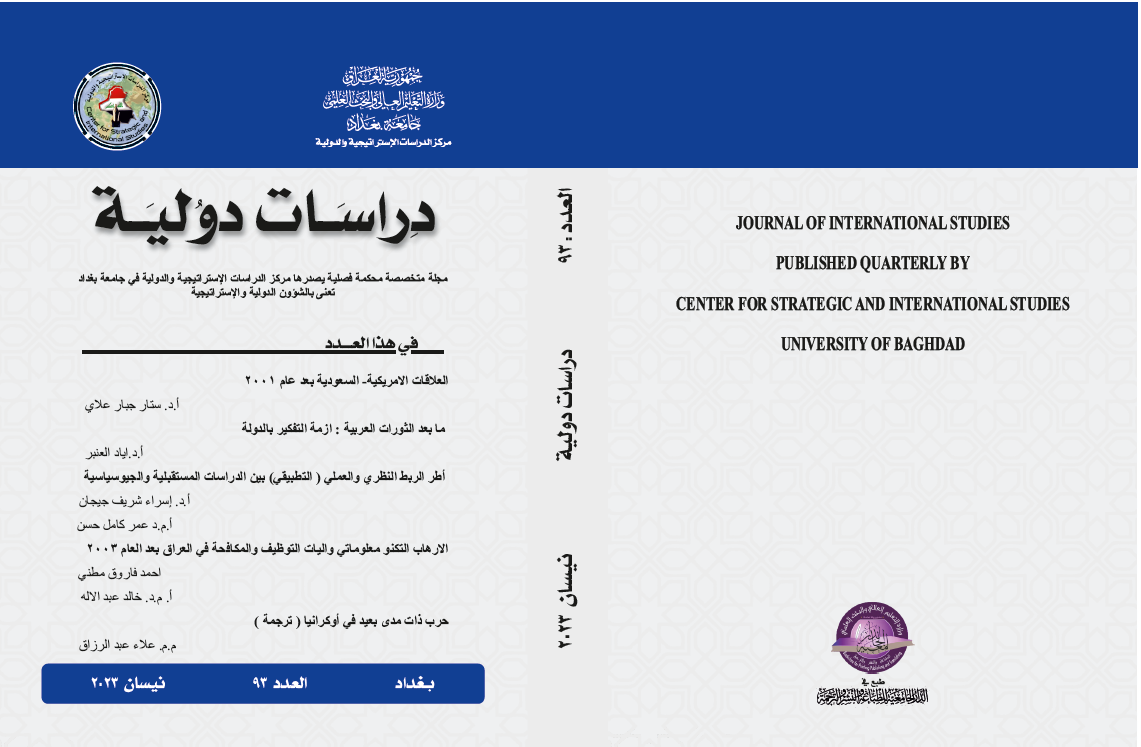Update experience in Germany1871- 2005
Abstract
The research discusses the modernization experience in Germany, beginning in 1871, when the German politician and the great leader (Otto von Bismarck) was able to unite Prussia after it was separate and conflicting emirates, to turn it into a single state with European leadership tendency, and with great economic and military power. The research also discusses the modernization experience in West Germany after the Second World War and how Germany was able to become an important economic power in Europe and globally, and even one of the largest of the seven economies at the global level, and what capabilities were available to the Germans and what kind of leadership that exploited those capabilities to advance the German economy and to record one of the most successful modernization experiments Europe and globally.
Germany emerged from the war as a broken state, as factories and infrastructure were destroyed, and Germany was divided into two parts, east and west, and the capital Berlin was also divided into two parts, East Berlin and West Berlin, which was reflected in the economic, political and social situation, and Germany needed an industrial economic revolution. In order to rebuild and move towards economic development, which is what actually happened, as the German modernization experience was considered a unique experience in its results, due to which the German economy moved from a broken economy to one of the largest economies in Europe.



